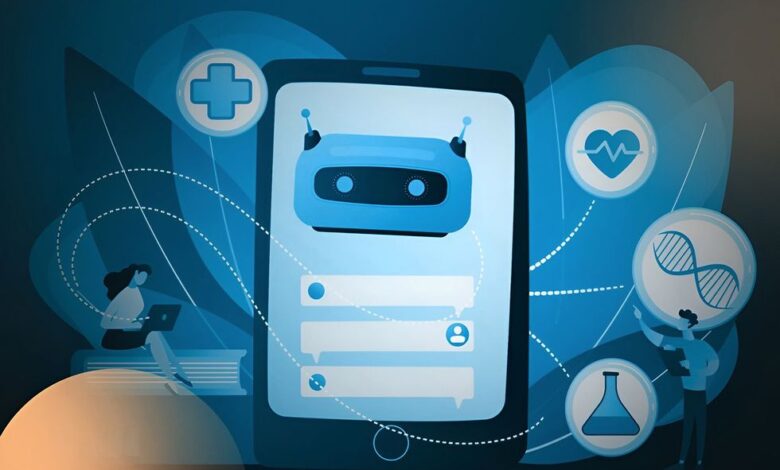The Business Impact of Medical Chatbots on Healthcare Delivery

The development of technology has enabled significant changes in the field of healthcare. Using chatbots for medical cure is one of the most amazing developments. Artificial intelligence-driven chatbots are changing the way healthcare is provided. They give many kinds of services, such as scheduling appointments and responding to questions about health.
1. How Medical Chatbots Work
A medical chatbot is a software system controlled by artificial intelligence that speaks with patients. Natural language processing is used by these chatbots to understand and reply to questions about health. A patient may ask a chatbot, for example, about symptoms they are having, and the chatbot may guide them on what to do next.
Also, medical chatbots can help with appointment scheduling, medication reminders, and even giving mental health assistance. They provide speedy access to medical information for patients without allowing them to speak with a doctor directly.
2. The Business Impact of Medical Chatbots
Reducing Healthcare Costs
Lowering costs for healthcare is one of the main benefits of using medical chatbots. Medical personnel commonly spend time responding to common questions or performing jobs that chatbots might complete. Healthcare professionals have more time to work on serious cases when chatbots take care of these simpler tasks.
For example, the chatbot may comfort a patient who has no symptoms so they can take care of their illness at home. As a result, patients and healthcare systems save money, and medical centers are less pressured.
Improving Access to Healthcare
Access to healthcare is also being enhanced by medical chatbots. Because they are open all the time, patients can receive help day or night. People who live in rural or remote areas, where access to doctors may be restricted are going to benefit from this. Patients can get health advice and information without having to go far because of medical chatbots.
Enhancing Patient Engagement
Involving patients is important to improving health outcomes. Patients who participate fully are more likely to pay attention to their medication schedules and take prescribed medications on time. Medical chatbots, which provide personalized communication, are a major factor in increasing patient engagement.
For example, a chatbot can follow up with previous meetings or remind patients to take their medication on time.
Reducing Stress for Medical Personnel
Heavy workloads are common for healthcare professionals, particularly during global epidemics and other health emergencies. By taking care of routine tasks like scheduling appointments, responding to everyday health queries, and introducing patients to the right department, medical chatbots help reduce this level of stress.
This allows medical professionals to concentrate on more urgent or difficult patients, such as doctors and nurses. Also, because they have fewer basic duties to complete, it reduces frustration among healthcare professionals.
Data Collection and Analysis
The power of medical chatbots to collect and analyze patient data has a major business impact as well. Chatbots can record patient communications, symptoms, and other medical data. Healthcare workers may use this information to improve their strategies and get a deeper understanding of patient needs.
Also, the information gathered might be used to predict outbreaks or identify health trends. Healthcare professionals can make better decisions and give their patients better cures by assessing this data.
3. The Future of Medical Chatbots
Medical chatbots are going to grow more complicated over time as technology develops. Better AI algorithms, better language processing, and greater interaction with electronic health records are possible future growth. This will make it possible for chatbots to give patients even more accurate and individualized care.
Medical chatbot’s function in offering healthcare will likely grow as well. They might take on challenging responsibilities including managing chronic diseases or providing mental health therapy. Instead of improving patient care, these advancements will open up new business possibilities for tech firms doctors, and nurses.
Conclusion
Medical chatbots can completely change healthcare by lowering expenses, expanding availability, and increasing patient satisfaction. They reduce the burden for medical staff and offer helpful data to enhance patient care. With the rising popularity of medical chatbots, the delivery of healthcare seems to be easier and more effective in the future. The medical field will continue to change as a result of these advancements, becoming more customer-focused while maintaining high standards of care.




